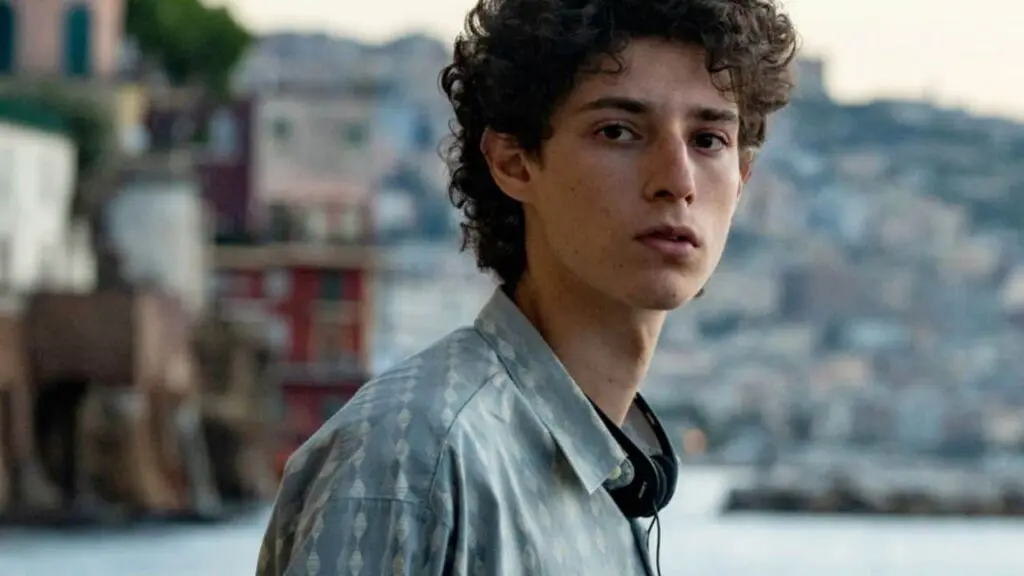Summary
The story of coming-of-age struggles blending reality and fiction.
One of the characters of the movie The Hand of God asks the protagonist, “Do you know how many stories there are in this city? Do you have a story to tell?” Internationally acclaimed director Paolo Sorrentino’s The Hand of God is that story he wants to tell—the very personal story of growing up, which resonates with all coming-of-age adults throughout the world.
The story of Fabietto, based on the real-life of Sorrentino himself, becomes the representation of the people who are struggling to understand the world, its cruelty, and its beauty.
In a scene, it is stated, “Reality is lousy”. Perhaps that’s why it hurts us so much, makes us try to break free from the reality to live some fantasy. For Fabietto, this is his constant urge. After he faces the cruelty of real life, he doesn’t want to live in the reality. He tries to live in the fictional world and eventually he finds solace in cinema.
Sorrentino uses many magic realism motifs to depict this conflict of reality and fiction. And with those elements, the film beautifully portrays the growing up in life. From the beginning to the end, it is an epic study of the transition from a teenager to an adult.
This transition of Fabietto of his sexual, emotional maturity is the visceral thing about the struggle to cope up out of your own.
Filippo Scotti is brilliant in the role of Fabietto. He not only acts the role but also lives through it. He pulls all the strings of emotions in one pull, which hits hard. He was awarded the Marcello Mastroianni Award at the Venice Film Festival; he is the brightest kid who has a bright future ahead, in my opinion.
Other actors, such as Toni Servillo and Teresa Saponangelo, complement Scotti’s performance to flesh out, playing the roles of his father and mother, respectively. The performance of Luisa Ranieri (7 Women and a Murder) especially has to be noted. Her psycho-sexual depiction as Aunt Patrizia in the movie works as a catalyst in the process of Fabietto’s sexual maturity.
An empathetic character often misunderstood by others is likely a metaphor for the people who struggle to cope in the mysterious world. The relationship between Fabietto and Patrizia is like that of two sides of a single coin. Where Fabietto is wary about facing reality and tries to run away from it, Patrizia is bold and doesn’t give a damn.
We all know about the famous ‘Hand of God’ by the great Diego Maradona. The movie starts with a quote from the famous footballer: “I did what I could. I don’t think I did so badly.” This introspection is the key in Sorrentino’s film, as after so many years, he revisits his past and sees whether it is worth living in beautiful fiction (in cinema) or cruel reality. And that’s why I am grateful to him.
Read More: The Hand of God Ending Explained




